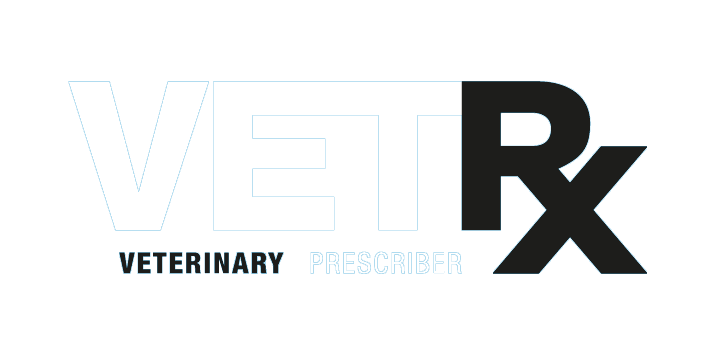Regarding the Veterinary Cascade & Veterinary Specials
Regarding the Veterinary Cascade & Veterinary Specials
The veterinary cascade is an established system that allows veterinarians to prescribe unauthorised medication, under certain circumstances, in the interest of animal welfare. Here we’ll briefly discuss the cascade, and then explore the rising interest in veterinary ‘specials’ - unlicensed formulations that are only used under the cascade.
Medicine Regulation and the Veterinary Cascade
The veterinary medicines licensing (authorisation) system in the UK is intended to protect animals, humans and the environment from the use of medicines with a poor benefit-harm balance, based on an evaluation of the quality, efficacy, and safety.
After a veterinary medicine has been licensed, it is the prescriber who assesses the benefit-to-harm balance and makes decisions about whether the medicine should be prescribed for a particular animal, guided by factors such as the patient’s characteristics (e.g. age, concurrent disease), the seriousness of the disease being treated, the evidence of benefits of the treatment, and what is known about the harms (adverse effects) of the treatment.
The benefit-harm balance will be most favourable when the potential for adverse effects in the patient is low, the disease is serious and severe, the treatment has substantial and well-established efficacy, and the harms are well-defined, unlikely, and minor.
The Veterinary Cascade: A risk-based decision framework
Assessing the benefit-harm balance is particularly important when the prescriber needs to move away from the licensed uses (indications) of a veterinary medicine. This is the basis for the prescribing cascade (defined in the UK’s Veterinary Medicines Regulations), which sets out the order of consideration that a vet should follow when choosing a medicine to prescribe (from lower to higher risk).
At each point it is assumed that the earlier choices are not available:
Veterinary Cascade step 1: a veterinary medicine with a marketing authorisation in GB/UK for the species and condition
Veterinary Cascade step 2: a veterinary medicine with a marketing authorisation in Northern Ireland (NI) for the species and condition (an import certificate is needed). This step is a consequence of the Northern Ireland protocol since the UK left the EU, which means that medicines in Northern Ireland fall under European regulation.
Veterinary Cascade step 3: a veterinary medicine with a marketing authorisation in GB/UK/NI for another species or condition.
Veterinary Cascade step 4: a human medicine with a marketing authorisation in GB/UK/NI, or an authorised veterinary medicine from outside the UK (an import certificate is needed).
If none of these options will suffice for the clinical needs of the patient, then a completely unlicensed product may have to be used, in the form of a bespoke formulation (also known as extemporaneous preparation) prepared by a vet or a pharmacist, or by one of the UK’s authorised ‘specials’ manufacturers. This the final step (5) in the veterinary cascade.
Unlicensed Formulations and the Veterinary Cascade
As unlicensed formulations, ‘specials’ have not been subjected to the same scrutiny of quality, efficacy and safety as a licensed product. Their usefulness is that, when prescribed following the veterinary cascade, they can solve various problems associated with administering a medicine to an animal, which would otherwise remain untreated. For instance, when the licensed formulation of a drug is not available in an appropriate strength for the particular animal; or the animal will not take the licensed formulation; or there is no licensed formulation of a drug for which there is evidence of efficacy.
Specials should only be prescribed according to the veterinary cascade. Cost and convenience are not justifiable reasons to prescribe a special formulation.
Authorised specials manufacturers have production processes that meet the minimum standard for the manufacture of medicines, and they must have quality assurance and quality control systems. It is important to understand that it is the manufacturer that is authorised (by the Veterinary Medicines Directorate), not the products they manufacture.
Specials manufacturers are not permitted to sell medicines that are equivalent to any licensed veterinary medicine, unless a licensed product is unavailable (in which case an equivalent special can be manufactured temporarily). And while specials companies can advertise their services and provide a list of the formulations they manufacture to vets on request, they are not allowed to advertise specific products.
Risks of the Cascade, Specials
Prescribing a special carries more risk and responsibility for the prescribing vet than prescribing a licensed medicine. There is a need to check there are no suitable products higher up the veterinary cascade; ensure there is sufficient evidence to support the choice of treatment, and as specials have no summary of product characteristics (SPC), data sheet or package leaflet, the vet must provide the pet owner with dosage and administration instructions, and warnings related to the use or disposal of the product.
In the UK, the specials manufacturing sector seems to be growing. The number of authorised specials manufacturers is small but increasing, and the range of medicines that specials companies prepare (or are asked to prepare) seems to be expanding. This is only a perception because there is no available data on which drugs are most often prescribed as specials, nor the volumes prescribed.
It seems important to know this because it would give an indication of what is needed for the treatment of animals, but is not provided by manufacturers of licensed medicines. The VMD monitors imported medicines and publishes a list of the most-commonly imported products to encourage manufacturers to fill the gaps. It also seems important to have some idea of the range and scale that specials use, if only for reassurance that the safeguards of medicines regulation are not being bypassed and lost. It seems right that the proposed changes to the Veterinary Medicines Regulations include measures that will increase understanding about the use of unlicensed veterinary medicines.

